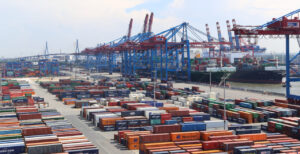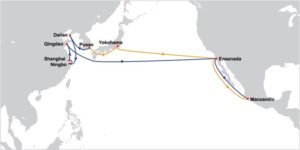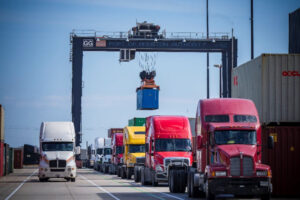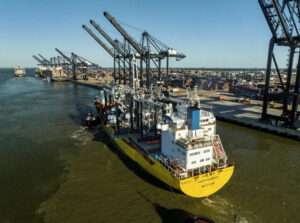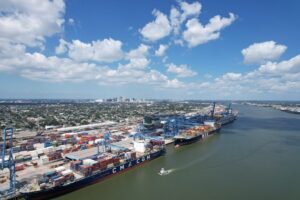The Port of Rotterdam and Spanish oil and gas group Cepsa have signed a Memorandum of Understanding (MoU) to establish the first green hydrogen corridor between southern and northern Europe.
The deal will ensure a green hydrogen supply chain between two of Europe’s main ports, Rotterdam and Algeciras.
Cepsa plans to export hydrogen produced at its San Roque Energy Park near the Bay of Algeciras, through hydrogen carriers such as ammonia or methanol, to the Port of Rotterdam.
With the Dutch Government’s support, and as part of Rotterdam’s Energy Transition plans, the port authority together with private companies are developing necessary infrastructure and facilities for import/export of green hydrogen.
READ: Halifax & Hamburg sign deal to decarbonise shipping corridor
According to the port’s recent statement, green fuels are key to decarbonise industry and maritime transport in the Bay of Algeciras and Rotterdam while supporting the European Union’s RePower EU strategy – which seeks to guarantee Europe’s energy independence and security and stimulate the production of clean energy.
The trade lane is expected to be operational by 2027.
Cepsa also intends to develop a similar supply chain from its La Rabida Energy Park in Huelva.
“The opportunity to build the first green hydrogen corridor in Algeciras, the leading energy port in Spain, demonstrates the unique role that Spain, and in particular Andalusia, will play in the energy transition in Europe,” said Maarten Wetselaar, CEO of Cepsa.
“Spain is ideally placed to become a world leader in the production and export of green hydrogen, given its strategic location, abundant generation of renewable energies, and its robust energy infrastructures and key ports, such as Algeciras and Huelva.
“This agreement is an example of the important collaborations necessary to bring about the energy transition in Europe and to ensure secure and independent energy supply.”
READ: Port of Rotterdam to start green hydrogen trial
“Northwest Europe uses far more energy than it can produce in a sustainable way,” added Allard Castelein, CEO Port of Rotterdam Authority.
“We are therefore setting up multiple trade lanes for green hydrogen, together with exporting countries and private businesses all over the world. We expect that in 2050 some 20 million tonnes of hydrogen will flow through the port, of which only 2 million tonnes will be produced locally.
“Setting up this trade lane between Algeciras and Rotterdam is a substantial contribution to Europe’s ambition to reduce CO2-emissions as well as increase Europe’s energy independency and stimulate our economies.”
Hydrogen is one of the priorities in Rotterdam’s Energy Transition plans with the Port of Rotterdam.
The port said it can supply northwestern Europe with 4.6 million tonnes annually by 2030, yielding 46 million tonnes of CO2 reduction.
The pipeline strip will accommodate pipes belonging to HyTransPort.RTM and Porthos for the movement of hydrogen and CO2.


